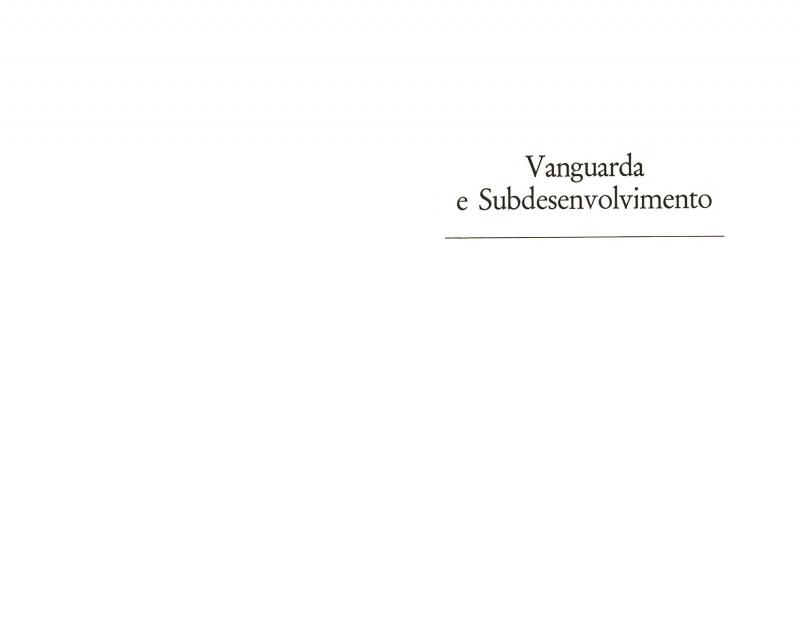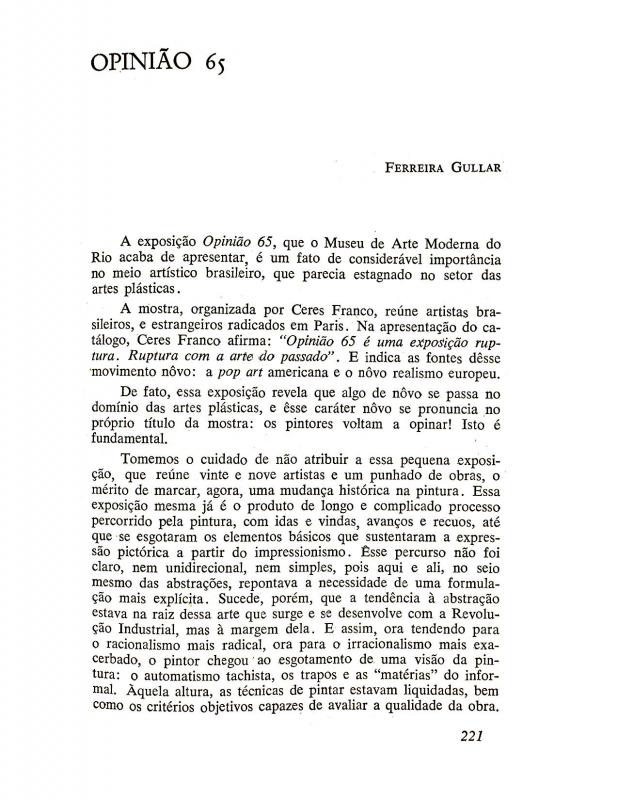The first two chapters of the book Cultura posta em questão include a discussion of the concept of “popular culture” and its relationship to nationalism, based on the principles underlying the aesthetic ideas espoused by the CPC (Centro Popular de Cultura). The CPC membership included artists working in theater, music, literature, and the visual arts; Ferreira Gullar was among them after the breakup of the Neo-Concrete group. Founded in Rio de Janeiro in 1961, the CPC was associated with the UNE (União Nacional dos Estudantes) and advocated the development of a “popular and democratic culture” through collective works that were deeply committed to raising political awareness in Brazil. The CPC’s major achievements included the theatrical production Eles não usam black-tie [They Don’t Wear Black Tie], by Gianfrancesco Guarnieri; the film Cinco vezes favela, created as a series of episodes by Joaquim Pedro de Andrade, Marcos Faria, Cacá Diegues, Miguel Borges, and Leon Hirszman; and the “string literature” workshops presented by Félix de Ataíde and Gullar. The CPC was shut down in 1964 immediately after the military coup on March 31; the theater directors (affiliated with the CPC) Oduvaldo Vianna Filho, Paulo Pontes, and Armando Costa, continued to share their spirit and ideas by presenting the famous musical Opinião, starring the singers Zé Ketti, João do Valle, Nara Leão and, later on (replacing Nara) Maria Bethânia.
In the early 1960s—after having been the mainstay of the Neo-Concrete movement—the poet and critic [José Ribamar] Ferreira Gullar (b. 1930) became an extremely vocal critic of Brazil’s social problems when he joined the CPCs (Centros Populares de Cultura). The book Vanguarda e subdesenvolvimento: ensaios sobre arte [Avant-Garde and Underdevelopment: Essays on Art] was written between 1965 and 1969, after the 1964 military coup that had a devastating impact on life in Brazil until 1985, when the dictatorship ended. Under those circumstances, Gullar joined the PCB (Partido Comunista Brasileño) at a time when Brazilian leftists began a process of reorientation and self-criticism, which, in one way or another, influenced Ferreira Gullar’s essays, and most of all, his critical view of the imported avant-gardes. [See the ICAA digital archive “Vanguarda e subdesenvolvimento,” doc. no. 1110361].
The exhibition Opinião 65 was unquestionably an important event with the potential to revitalize the stagnant state of the visual arts in the wake of the military coup of March 31, 1964 (see doc. no. 1090530). Gullar wonders if the new works shown at this exhibition reflect an international movement. He nonetheless believes that each local area can have its own particular characteristics, and imagines that art might emerge from a culture’s critical approach to concrete reality.


